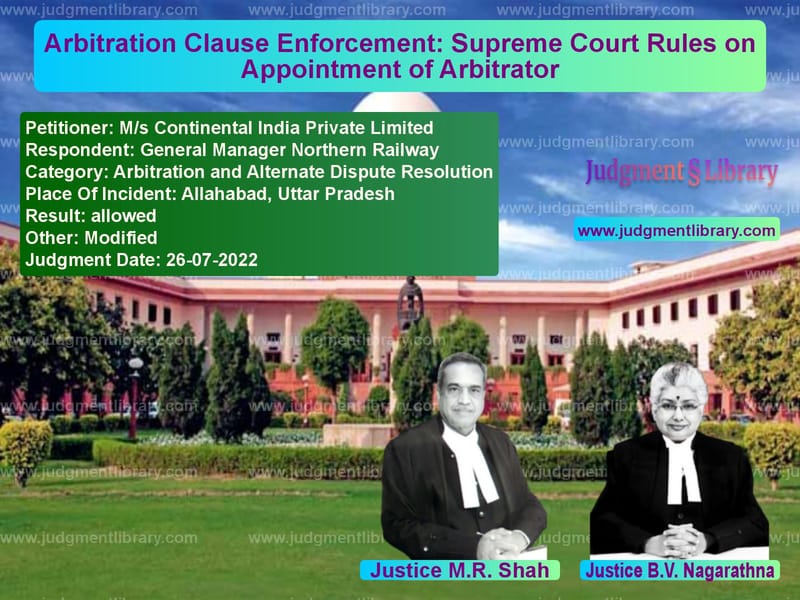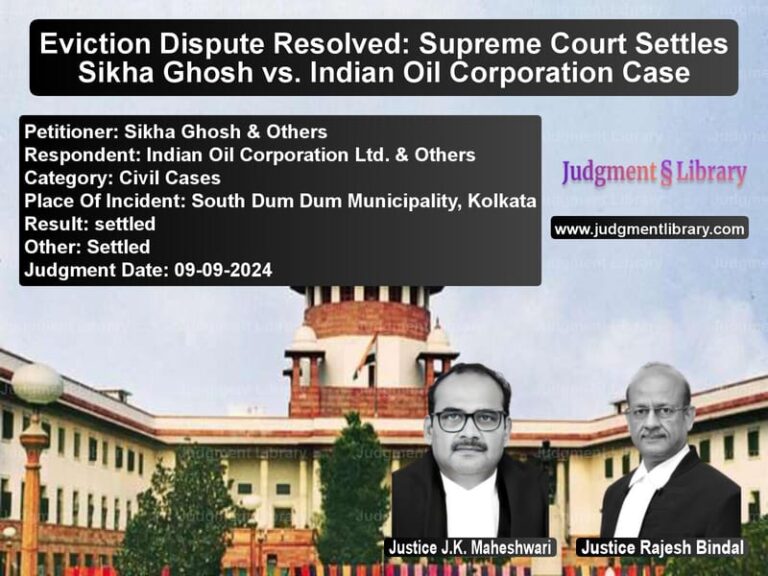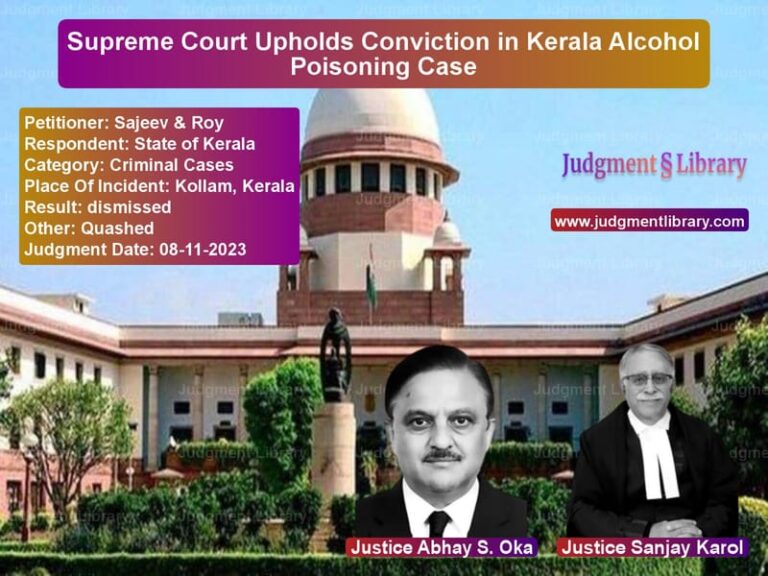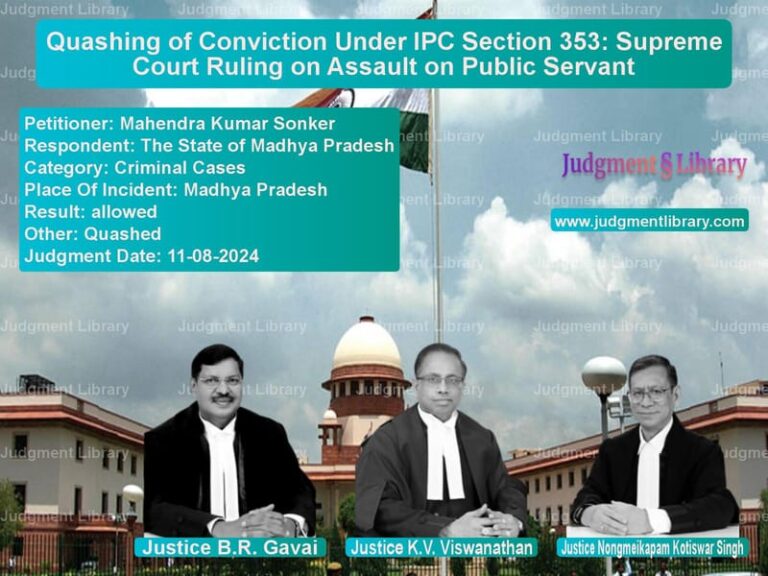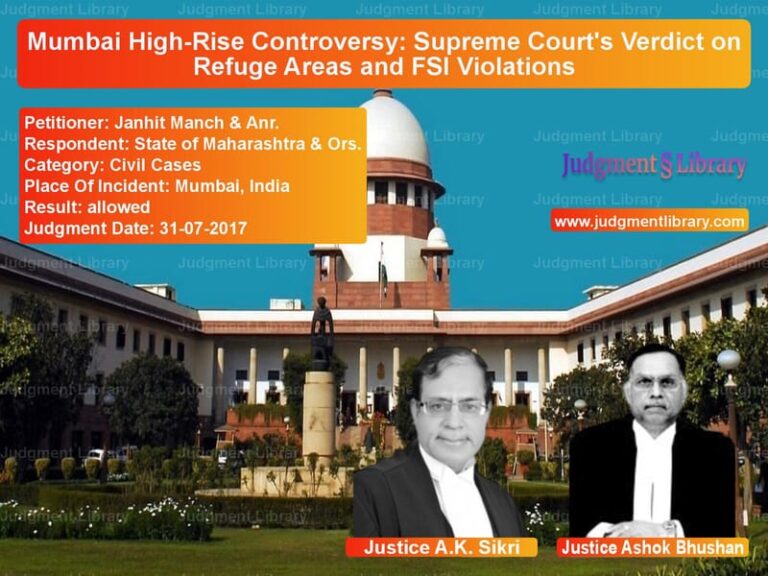Arbitration Clause Enforcement: Supreme Court Rules on Appointment of Arbitrator
The Supreme Court of India delivered a significant ruling in M/s Continental India Private Limited vs. General Manager Northern Railway, addressing the enforcement of arbitration clauses in commercial agreements and the appointment of arbitrators under the Arbitration and Conciliation Act, 1996.
Background of the Case
The appellant, M/s Continental India Private Limited, entered into a contract with the Northern Railway containing an arbitration clause. The agreement stipulated that in case of disputes, arbitration would be conducted by a sole arbitrator appointed by the General Manager of the Railway. However, when a dispute arose, the General Manager failed to appoint an arbitrator, prompting the appellant to approach the High Court of Allahabad under Section 11(6) of the Arbitration and Conciliation Act.
The High Court ruled in favor of arbitration but directed the respondent to appoint an arbitral tribunal in terms of clause 64(3)(b) of the General Conditions of Contract (GCC), instead of appointing a sole arbitrator as requested by the appellant. Dissatisfied with this ruling, the appellant moved to the Supreme Court.
Petitioner’s Arguments (Continental India Private Limited)
The appellant raised several legal contentions, arguing:
- The High Court committed an error by not appointing a sole arbitrator despite the respondent’s failure to do so.
- The arbitration clause in clause 32 of the agreement clearly allowed for sole arbitration.
- By failing to appoint an arbitrator, the General Manager forfeited his right to do so.
- The High Court’s direction to follow the procedure in clause 64(3)(b) of the GCC was incorrect because:
- The GCC was not signed by both parties.
- The GCC was not referenced in the main agreement.
- The GCC’s applicability was prospective (from July 2020), while the agreement was executed before that date.
- The High Court had the power to directly appoint an arbitrator under Section 11(6) of the Arbitration and Conciliation Act, 1996.
- Reliance was placed on Deep Trading Company vs. Indian Oil Corporation (2013), which held that failure to appoint an arbitrator within the prescribed time results in the forfeiture of such rights by the concerned authority.
Respondent’s Arguments (Northern Railway)
The Northern Railway defended the High Court’s ruling, arguing:
- The GCC was applicable and clause 64(3)(b) was binding on the appellant.
- The High Court rightly directed the constitution of an arbitral tribunal instead of a sole arbitrator.
- The arbitration agreement did not override the standard conditions set forth in the GCC.
Supreme Court’s Observations
The Supreme Court analyzed the legal position regarding arbitration agreements and the power of courts to appoint arbitrators in case of default by one party. Key observations included:
- The arbitration clause in clause 32 of the agreement was binding.
- The failure of the General Manager of Northern Railway to appoint an arbitrator within the stipulated time resulted in forfeiture of its right.
- The General Conditions of Contract (GCC) were not explicitly incorporated in the agreement and could not override the arbitration clause.
- The High Court erred in directing the constitution of an arbitral tribunal as per clause 64(3)(b) of the GCC.
- The matter should have been directly resolved under Section 11(6) of the Arbitration Act.
Final Judgment
The Supreme Court overturned the High Court’s decision and ruled:
- The GCC was not binding, and clause 64(3)(b) was not applicable.
- The High Court’s failure to appoint an arbitrator under Section 11(6) was an error.
- The Supreme Court directly appointed Justice R. Banumathi, former judge of the Supreme Court, as the sole arbitrator.
Implications of the Ruling
This ruling reinforces key arbitration principles:
- Failure to appoint an arbitrator results in forfeiture of the right to do so.
- Courts have the authority to directly appoint arbitrators under Section 11(6) in cases of default.
- General Conditions of Contract (GCC) do not automatically override individual arbitration agreements.
This decision strengthens the enforceability of arbitration agreements and ensures that parties adhere to timely dispute resolution mechanisms.
Petitioner Name: M/s Continental India Private Limited.Respondent Name: General Manager Northern Railway.Judgment By: Justice M.R. Shah, Justice B.V. Nagarathna.Place Of Incident: Allahabad, Uttar Pradesh.Judgment Date: 26-07-2022.
Don’t miss out on the full details! Download the complete judgment in PDF format below and gain valuable insights instantly!
Download Judgment: ms-continental-indi-vs-general-manager-nort-supreme-court-of-india-judgment-dated-26-07-2022.pdf
Directly Download Judgment: Directly download this Judgment
See all petitions in Arbitration Awards
See all petitions in Institutional Arbitration
See all petitions in Dispute Resolution Mechanisms
See all petitions in Judgment by Mukeshkumar Rasikbhai Shah
See all petitions in Judgment by B.V. Nagarathna
See all petitions in allowed
See all petitions in Modified
See all petitions in supreme court of India judgments July 2022
See all petitions in 2022 judgments
See all posts in Arbitration and Alternate Dispute Resolution Category
See all allowed petitions in Arbitration and Alternate Dispute Resolution Category
See all Dismissed petitions in Arbitration and Alternate Dispute Resolution Category
See all partially allowed petitions in Arbitration and Alternate Dispute Resolution Category

